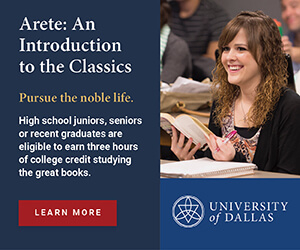The FDA has granted emergency use authorization for the Pfizer vaccine, and the first doses are being administered to healthcare workers across the country this week. Next on the horizon is the Moderna vaccine, and others from major pharmaceutical companies that have been developing and testing these vaccines for months.
Though it may be a while before these Covid-19 vaccines are available to the general public, this topic has caused confusion among many faithful Catholics who wonder which of these vaccines are ethically sound. The primary concern has been that some of these vaccines are developed using the cell lines of aborted children.
Fr. Tad Pacholczyk, Director of Education and Staff Ethicist at the National Catholic Bioethics Center, joined some Relevant Radio® programs to help unpack this complicated topic and bring clarity to Catholics who want to make an informed decision.
Development
How were each of the three major vaccines to potentially hit the US market—Pfizer, Moderna, and AstraZeneca—developed? Do any of them have anything to do with abortion? Fr. Tad explains:
“The mRNA vaccines from Pfizer and Moderna, they don’t use any cells at all. Zero cells. No cells of any animal or any human. … But you can contrast that with the AstraZeneca vaccine—that one does require the use of a cell line from an abortion that happened back in 1972 in order to manufacture and produce that vaccine on an ongoing basis. So they’re relying very heavily on that cell line.”
Church Teaching
Is there a moral requirement to decline any Covid vaccine that has been developed from a problematic cell line? Here’s the Church’s position:
“The Church has looked at this in at least three different documents going all the way back to 2005 and has stated, if there is not an alternative out there, it is permissible to use these vaccines, but you should do it with a protest. You should write to Big Pharma companies and say: This is a form of coercion. This isn’t right for you guys to be manufacturing it this way. We need other options; we need alternatives.”
As you weigh the options, Fr. Tad explains that a “proportionate reason” for receiving a morally questionable vaccine is key. “In the face of a proportionate reason, you are allowed to receive these vaccines even if they were made by relying on some of these problematic cell lines from abortions. … And of course, health, wellbeing, safety of your life is going to be a proportionate reason, especially if you’re in a vulnerable age group for Covid-19.”
On December 11, the USCCB released a statement about the moral considerations of the Covid-19 vaccines stating, “In view of the gravity of the current pandemic and the lack of availability of alternative vaccines, the reasons to accept the new COVID-19 vaccines from Pfizer and Moderna are sufficiently serious to justify their use.”
About the AstraZeneca vaccine, the bishops stated, “The AstraZeneca vaccine should be avoided if there are alternatives available.” They also noted, “Just as accepting a vaccination for rubella with a morally compromised vaccine is morally permissible because of the lack of alternatives and the serious risk to the public health, so it would be permissible to accept the AstraZeneca vaccine.”
Bottom line
Pfizer and Moderna’s vaccines are free of cell lines from an aborted baby. The AstraZeneca vaccine is developed using the cell line from an abortion in 1972. It is preferable to receive the Pfizer or Moderna vaccines. However, if no other effective alternative were available, the AstraZeneca vaccine would be permissible by the Church.
For a more in-depth analysis, listen to more from Fr. Tad on The Drew Mariani ShowTM:
Stay tuned to Relevant Radio for more on this developing story in the coming days.
Tune in to The Drew Mariani ShowTM weekdays at 2-5pm CT only on Relevant Radio®.


